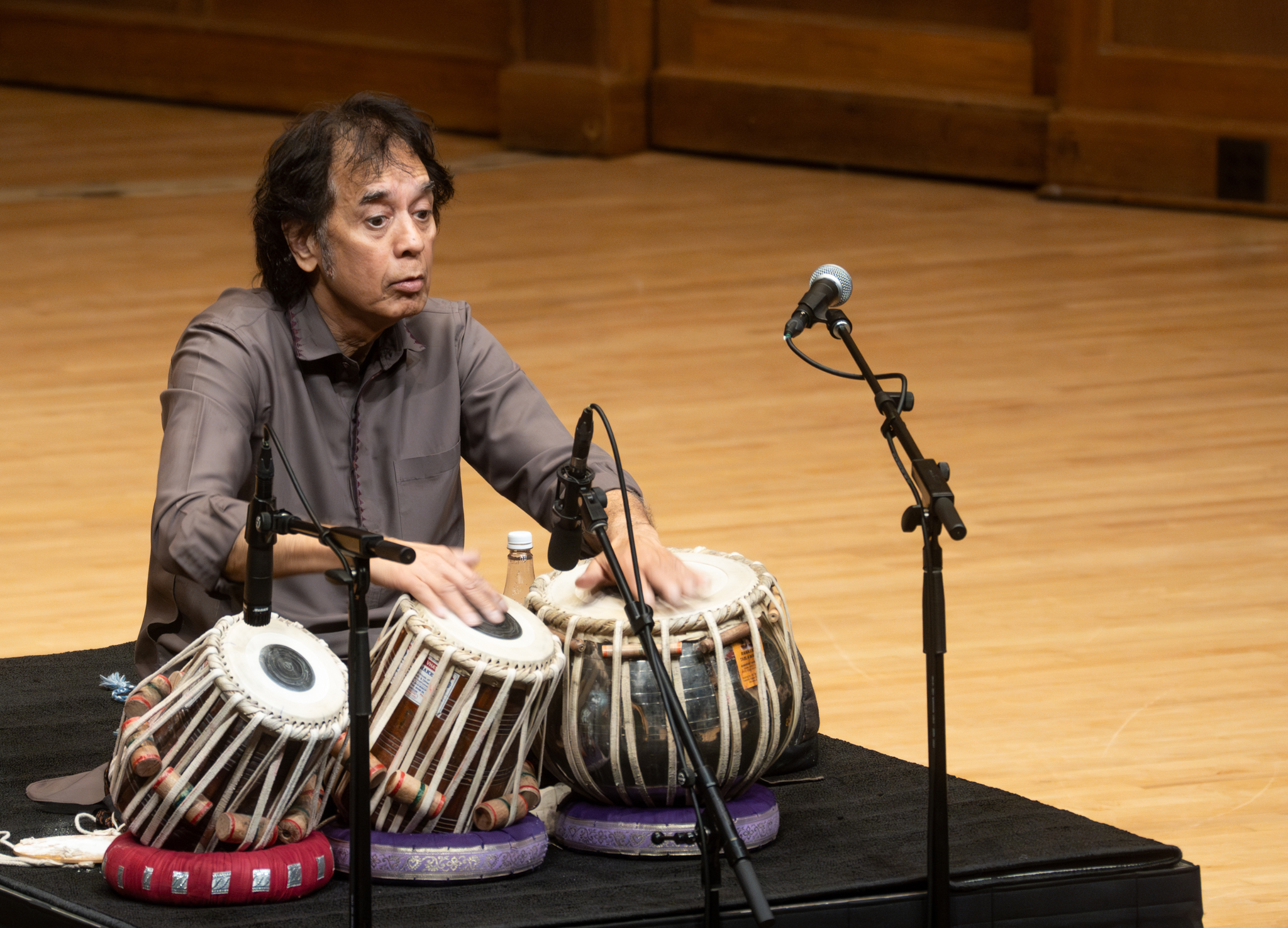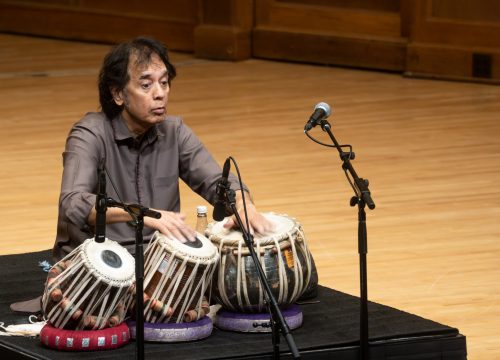Excerpt from “Interview with Ustad Zakir Hussain”:
Raidah Akber: You have worked a lot with what is usually termed as jugalbaandi or fusion, and I know you do not believe in those words, and you think of it as a dialogue (“It is a dialogue!” he interjects). So, I was thinking that you have collaborated with jazz music and had that kind of a conversation between Hindustani classical music and jazz. As you know, jazz has a rich history of political subversion by African-American people and, correct me if I’m wrong, but the impression that I get is that classical music is very highbrow and elitist. So, in terms of tradition, they seem very different to me. Would you agree with that and say something about their similarities and differences?
Ustad Zakir Hussain: Well, ‘til the mid 1900s, Indian Classical Music was never a highbrow form of music. It was considered a second-class profession because they were court musicians who played according to the Nawab and prince’s whims. They were not considered the elite of the society, so it was not like they were highbrow people, but it is true that the profession of Indian classical music was confined to the family who played that music. However, that was true for anyone in that time when a cobbler’s son was a cobbler, so it was never a profession that excluded people. It was just there to exist at the whims of the power that was in place. Mid-1900s onwards, Indian classical music had to rely on being a stage form, before which it was in the palaces; it was the second-class thing. After [Indian] independence, when it came on stage, and the musicians had to fend for themselves, they had to figure out a way to make this music viable for the Indian music crowd. At that point, there was also a movement to educate the musicians and their children to bring them to understand how to be conversant, not just musically but socially, which was not true in the past because they were unlettered people who had no knowledge other than music. So that movement spawned the arrival of great musicians like Pandit Ravi Shankar or Ustad Ali Khan, etc. They then became the darlings of the crowds because they found a way to not only share the music but also the spirit of the music, so it changed. Now, it is at a point where music is considered a viable profession and not a second-class profession to arrive at. Even the children of famous billionaires are now learning music, which was not the case in the past. Therefore, Indian classical music has now become a very desirable way of life that one thrives for. I don’t know how it is in Bangladesh, but it is true in India.
Akber: Now that you bring up the topic of Bangladesh, I guess it’s a good segway for my next question. In Bangladesh, I know some musicians, and one of their fathers practices classical music, and they live quite frugally because of that. Even in some of your interviews, you have mentioned that you had to struggle initially since you had to set the stage, so monetarily it was not very beneficial. Could you say something about your life as an emerging tabla artist, and how hard it was in terms of monetary benefit, and how you had to make do?
Hussain: Well, I think the music will not survive if the operators of the form are not inclusive in their projection of the art. If they are very up-in-the-air about how hard this form of music is to learn and they put up qualifiers, it will not work. And if the audiences have no clue what is going on, then that is a problem. There is an attitude in the art fraternity that needs to be lessened. And the other thing that needs to happen and has been happening is that the musicians need to find a way to make the music inpresent times, to reinvent the artform without actually changing the art form. What I mean by that is stage craft. They have come up with an incredible stage form where they have the kind of performance that is appealing. Now, having done that, they have adhered to the crowd and the crowd has also embraced them as incredible artists, which has allowed them to be more economically sound than they have ever been before. So, you must make the music commonly available and not hide it behind the veil of elitism. Therefore, you have to make the vocabulary available to people socially. I remember as a 14- or 13-year-old going to play at rich people’s homes, and I’d be made to wait in their kitchens ‘til those who were having these parties were ready to hear some music, and that’s when I would come out with other musicians I was accompanying, and that was that, and we were given leftover packed food to take home with us. But now, it is reversed, because in the same houses I am now invited to have dinner at the table, but they don’t know that I have been to their house, which they don’t remember, but the fact is that I get to go and do that. In my younger days, when I became popular, I even took one or two of their daughters out on dates and that was allowed suddenly.


